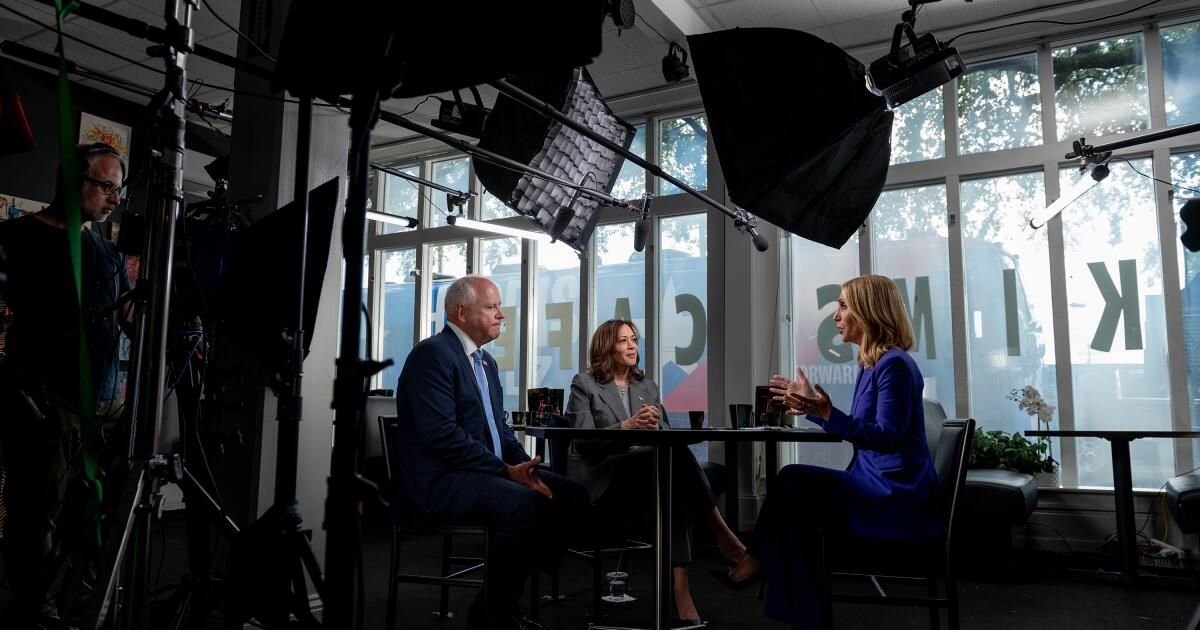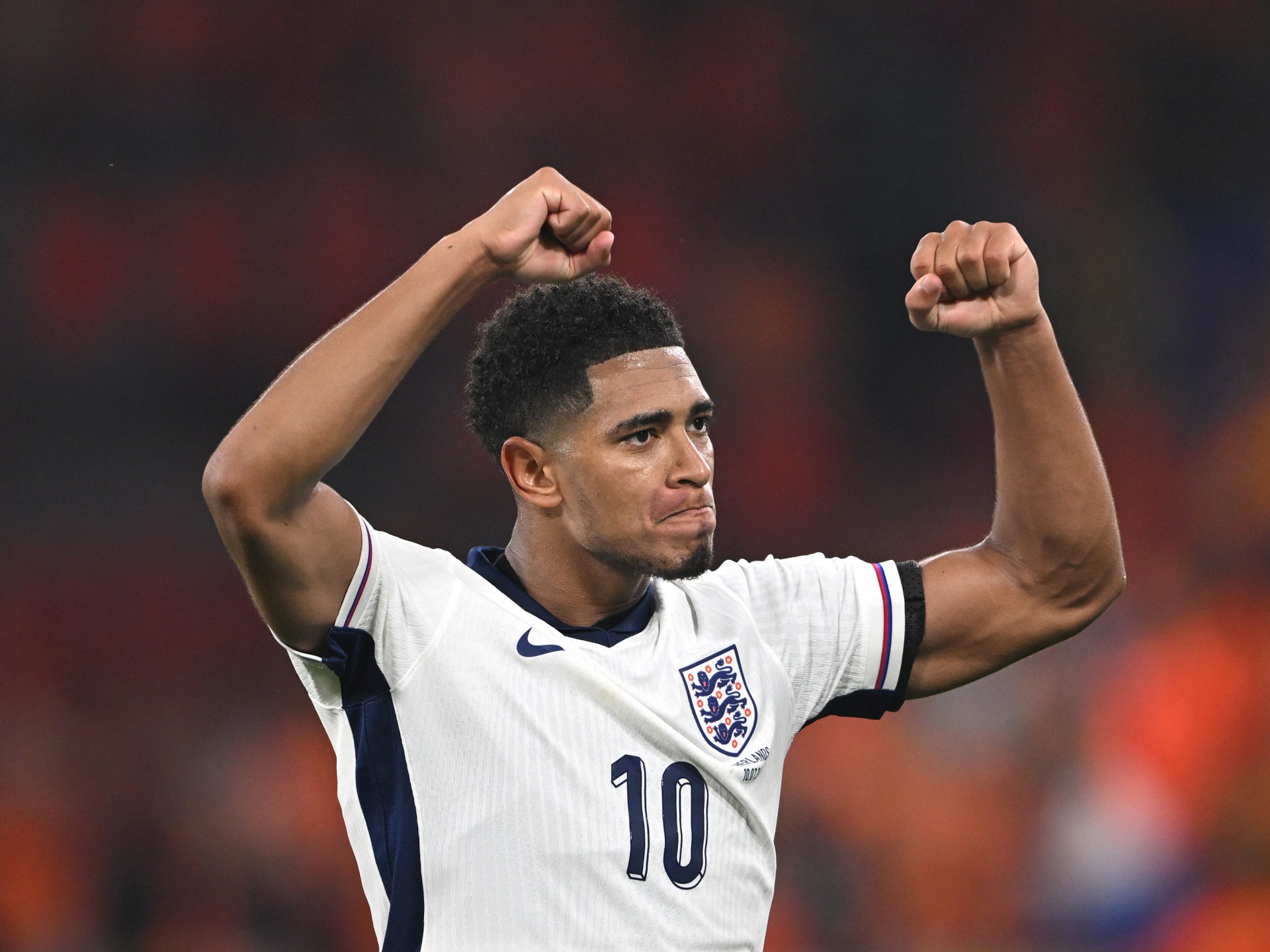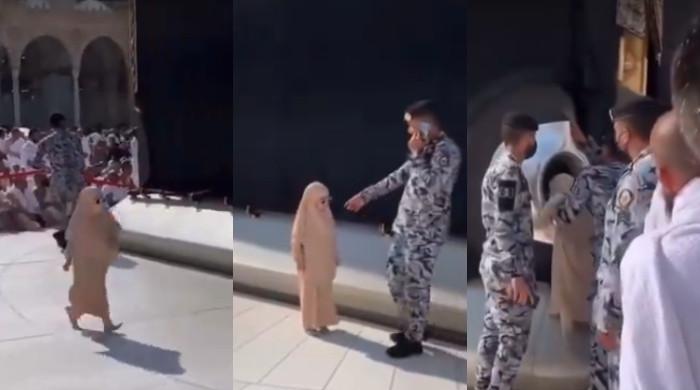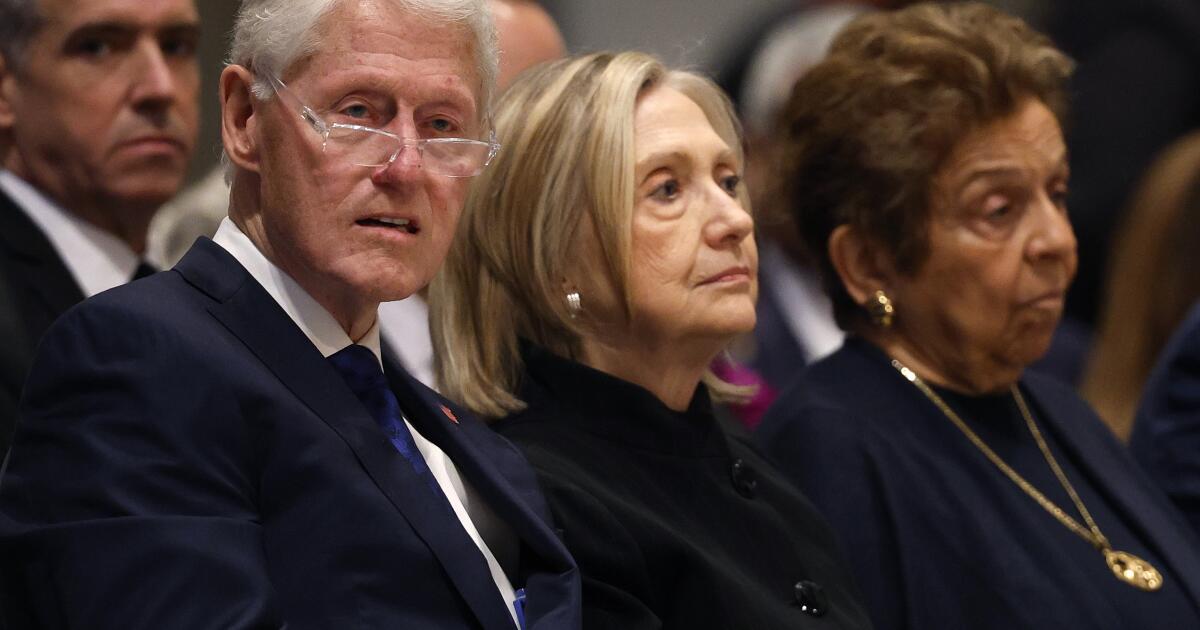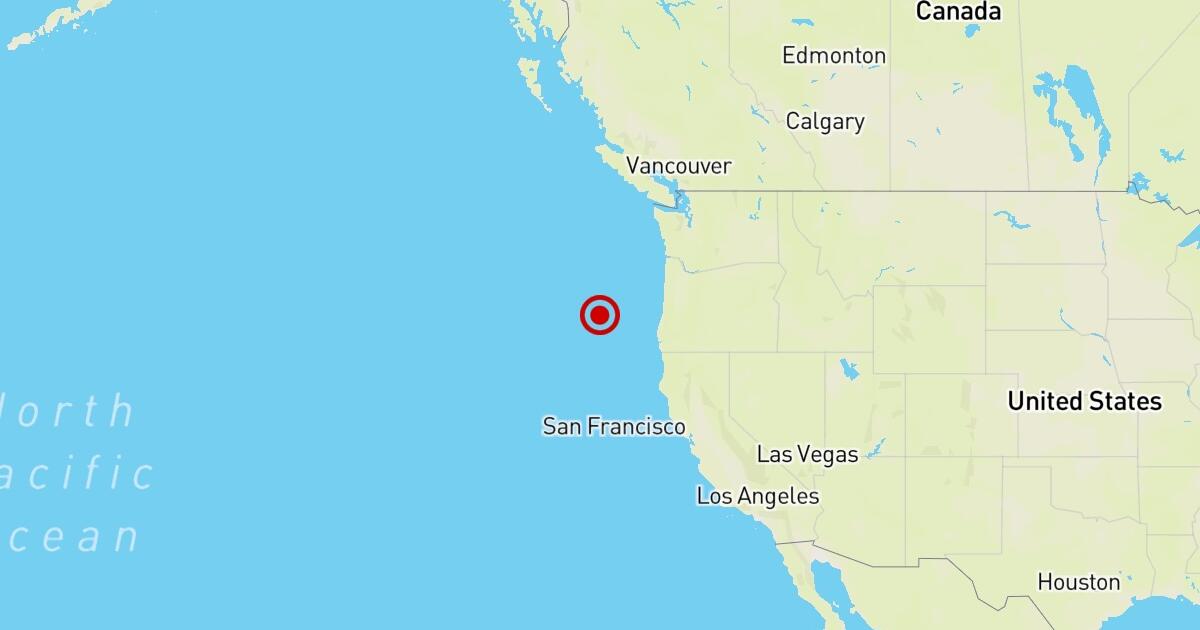Vice President Kamala Harris and her running mate, Minnesota Gov. Tim Walz, on Thursday gave their first interview since President Biden withdrew from his reelection campaign on July 21.
The interview with CNN's Dana Bash was recorded Thursday afternoon in Georgia and aired the same evening. Here are some takeaways:
Harris continues her turn toward the center
The interview provided further evidence of Harris’s shift toward the center — both in tone and policy — in the month and more since she was elevated to the top of the ticket.
The biggest promise from Thursday's interview: naming a Republican to her Cabinet if she's elected. Presidents often do this, but it's rarely a true team of rivals.
For example, then-President Obama chose former Rep. Ray LaHood, R-Ill., as his transportation secretary, a relatively low-key and less partisan position. But his selection did send the message that Obama was willing to work with Republicans and might even boost the transportation needs of their hometowns — one of the most valuable political chips a president has.
More importantly, Obama also kept former President George W. Bush's defense secretary, Robert Gates, in office for more than two years, a significant gesture for a country that was growing increasingly weary of its involvement in two wars.
Neither President Biden nor former President Trump have named opposition members to their Cabinets. In recent days, Trump has announced plans to seek political advice from former Democratic Rep. Tulsi Gabbard of Hawaii and Robert F. Kennedy Jr., the anti-vaccine activist who suspended his presidential campaign to support Trump. But both Gabbard and Kennedy have been outspoken critics of the Democratic Party.
Gabbard left the party in 2022 to become an independent. Kennedy dropped out of the Democratic primary last year to run as an independent, accusing both parties of corrupt leadership. He tried to meet with both candidates before issuing his endorsement last week, but was rebuffed by Harris.
Harris on changing jobs: “My values haven’t changed”
Harris's moves toward the center have sparked accusations of vacillation.
Harris had previously called for banning fracking, universal health care and decriminalizing border crossings. Now she rejects those positions and is promoting a conservative, bipartisan border bill (supported by President Biden and rejected under pressure from Donald Trump) as a central campaign promise. Last week’s Democratic convention portrayed her as a tough prosecutor in California, another shift from her emphasis on police reform when she ran in 2019 for the party’s presidential nomination.
“The most important and significant aspect of my political outlook and decisions is that my values have not changed,” Harris said Thursday.
As an example, she mentioned the Green New Deal, a set of expansive measures supported by progressives to combat climate change. She no longer supports it, but said that “the climate crisis is real. It is an urgent matter to which we must apply parameters that include meeting deadlines.”
In the CNN interview, Harris was evasive at times. She did not directly explain why she changed her mind on banning fracking, but said she changed her mind in 2020, during the general election, and has not changed since.
Trump disagreed. “She is admitting that she remains as dangerously liberal as ever,” her campaign said after an excerpt of the interview was published.
Trump has his own back-and-forth baggage. He has held multiple positions on abortion over the years, before promising to appoint Supreme Court justices who struck down the legal right to the procedure. And this year he reversed his support for banning TikTok after receiving large campaign donations from the company’s investors.
How will voters react? Supporters of both candidates have not complained. All that remains is a small portion of disengaged voters, who tend to pay less attention to politics until closer to the election.
Some awkward moments
Harris sounded hesitant as she answered the first question, an easy one about what she would do on Day 1 if elected, and returned to the slogans.
She said she would “strengthen the middle class” and offer “a new path forward,” while praising Americans for being driven “by hope and optimism.” She then got more specific, referring to her economic plan that would likely require congressional approval for policies like expanding the child tax credit and offering more money for first-time homebuyers — efforts that would take much longer than a day to come to fruition.
Why haven't you done this already?
Harris responded to one of Trump's biggest criticisms of why he has failed to deliver on his campaign promises over the past three and a half years while sitting in the vice president's office.
“First of all, we had to get back on our feet as an economy,” he said after discussing Trump’s handling of the COVID-19 pandemic when he was president.
She noted that inflation has dropped below 3% but acknowledged that prices remain too high for many Americans. Inflation is a top concern for voters, according to polls. That’s why Harris has been careful to acknowledge the difficulties and has promised to do more, even as she defends the administration’s economic record.
He also went on the offensive, pointing out that the Biden administration has capped prices on insulin and other prescription drugs for seniors.
Trump made the same promise, he said. “It never happened,” he said. “We did it.”
Will there be more interviews coming soon?
Harris's one-on-one interview came more than five weeks after Biden dropped out of the race, leaving her as the candidate.
Now that the pressure has eased, he can do more. That would benefit voters, many of whom say they don't know Harris well enough.
It could also help Harris on the political front, as she was able to reveal more of her personal side, describing the thrill of seeing her great-niece watching her at the convention, for example.
It wasn't riveting television, but the more he speaks in less scripted situations, the more practice he gets and the less effect a gaffe or misstatement can have.

